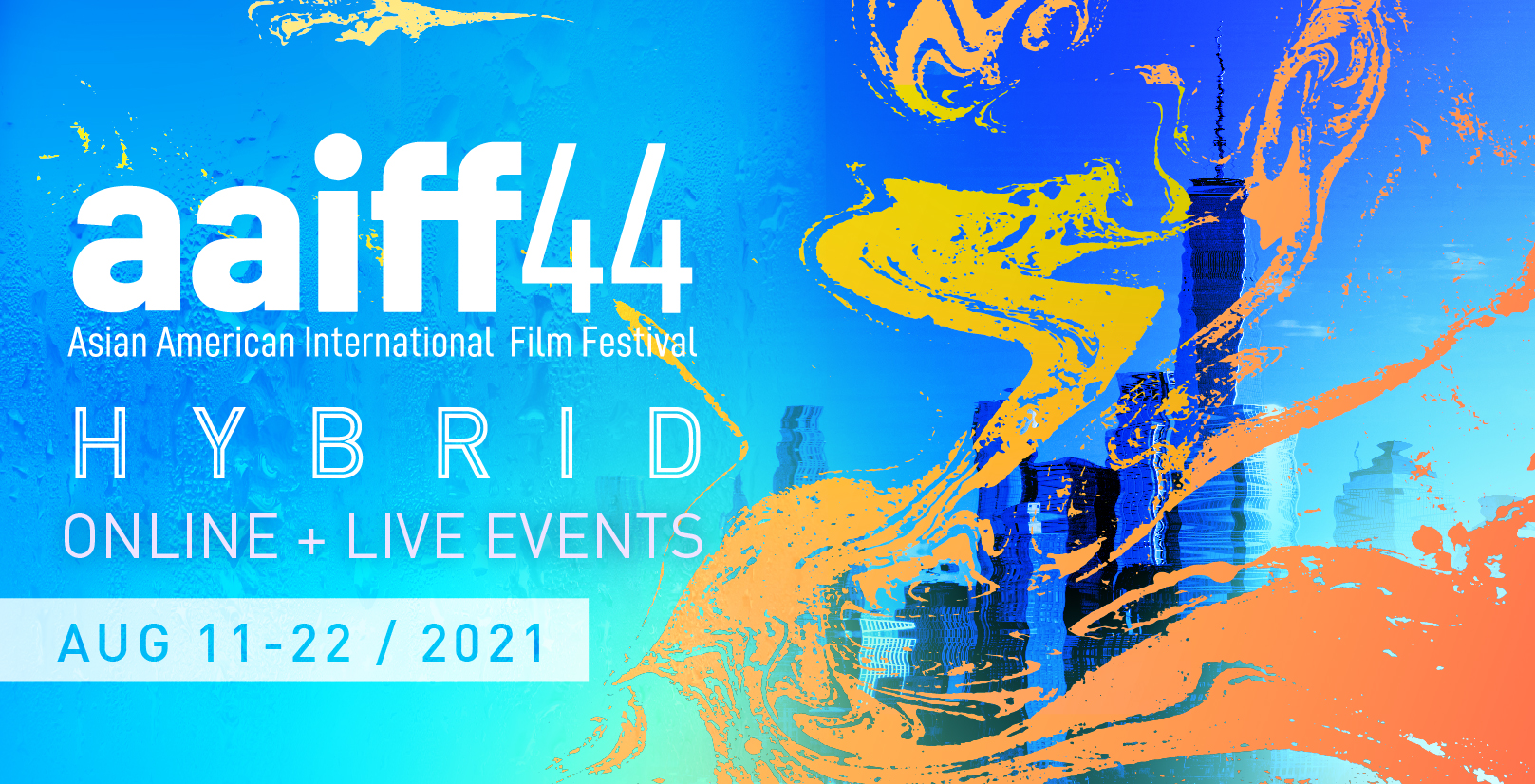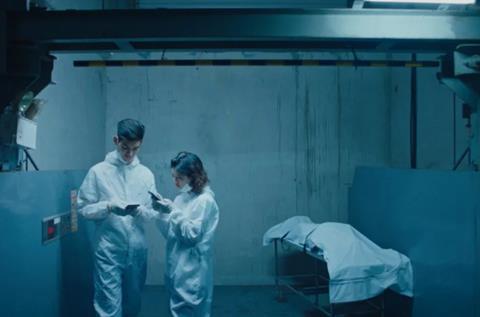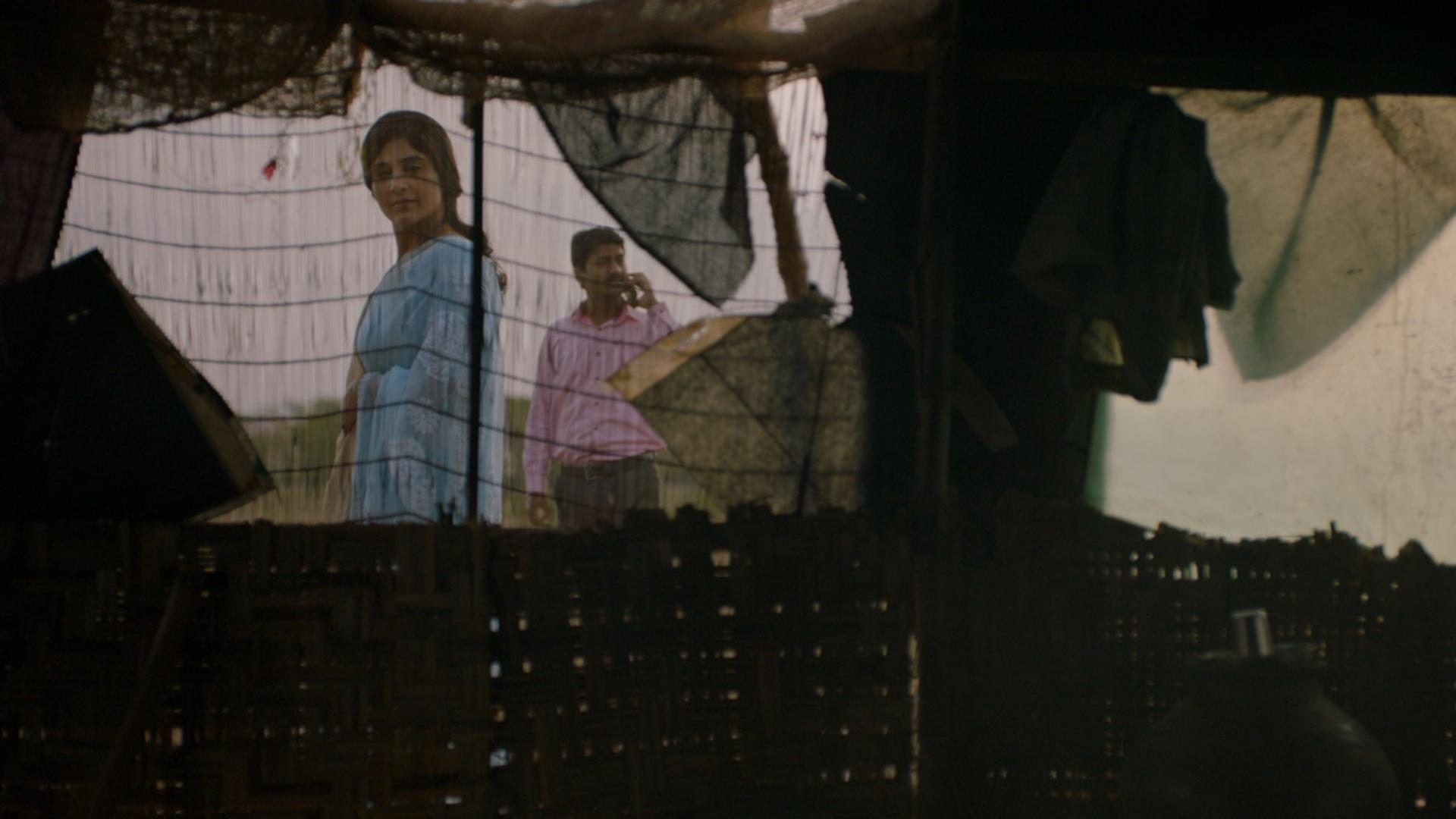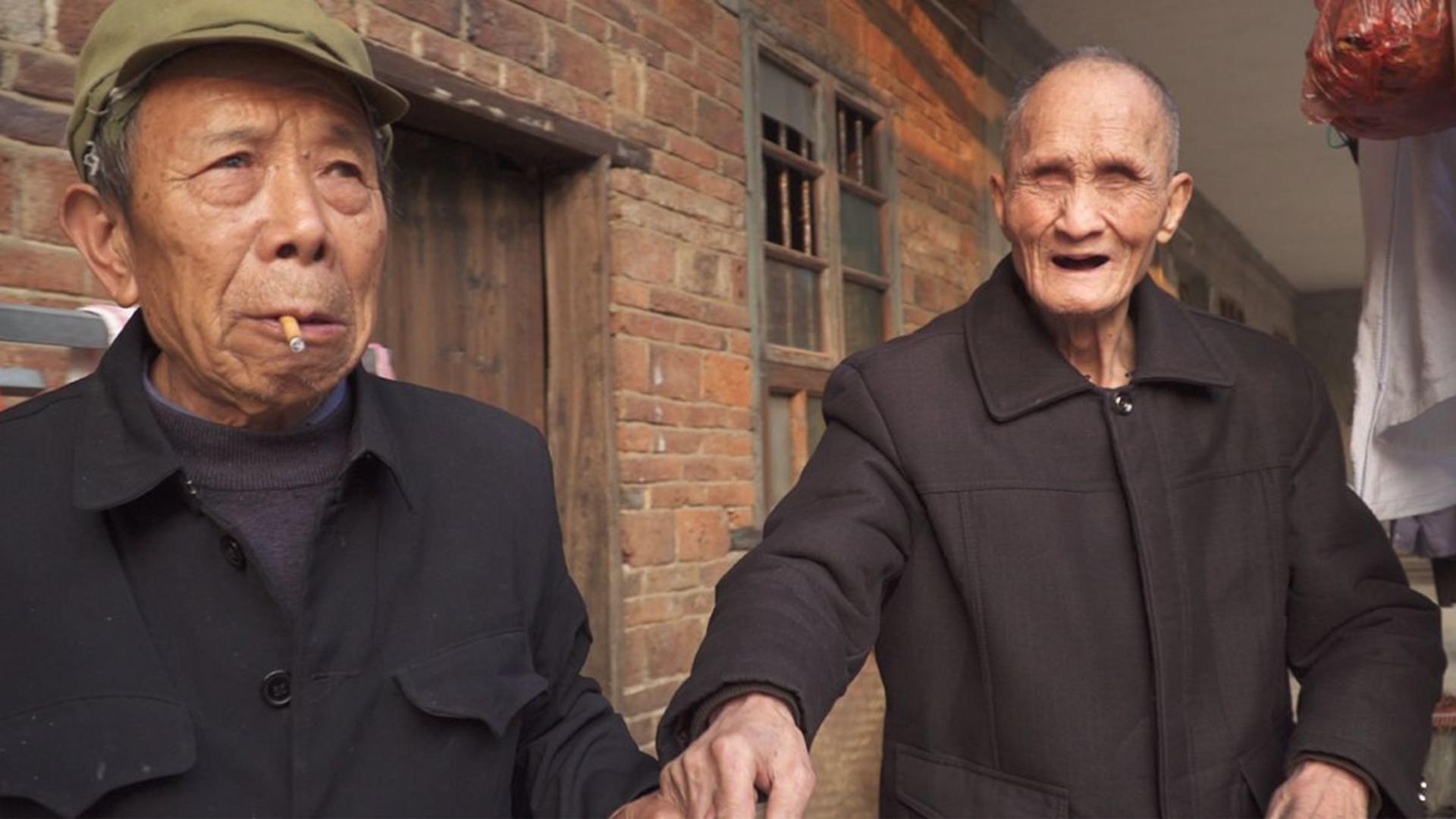|
|
||
|
Pro Tools
FILMFESTIVALS | 24/7 world wide coverageWelcome ! Enjoy the best of both worlds: Film & Festival News, exploring the best of the film festivals community. Launched in 1995, relentlessly connecting films to festivals, documenting and promoting festivals worldwide. We are sorry for this ongoing disruption. We are working on it. Please Do Not Publish until this message disappears. For collaboration, editorial contributions, or publicity, please send us an email here. User login |
Claus MuellerClaus Mueller is filmfestivals.com Senior New York Correspondent New York City based Claus Mueller reviews film festivals and related issues and serves as a senior editor for Society and Diplomatic Review. As a professor emeritus he covered at Hunter College / CUNY social and media research and is an accredited member of the US State Department's Foreign Press Center.
 New York AAIFF 2021
More than forty years ago Asian CineVision set up the Asian American International film festival in 1978, the first and longest running US festival focusing on Asian American film as an instrument of social change. Embracing the online and live events hybrid format, AAIFF’s 44th edition this year from August 11 – 25 showcased international films including 13 world premieres, special presentation of five features, nine narrative features, five documentaries and a short film program with 55 shorts from all over the globe. In a special double film viewing, Filipinos in Focus, LUMPIA WITH A VENGEACE and THE FABULOUS FILIPINO BROTHERS were screened at the Philippine Cultural Center. There were nine thematic blocks for the shorts ranging from productions by filmmakers aged 21 or less, queer stories, the quest for connections in Taiwan, to themes of love. The 2021 program included again a showcase of shorts made by students from the City University of New York. AAIFF continues to premiere many films by important film makers and new directors while maintaining the essential goal of highlighting stories from the Asian diaspora and the problems, issues, and prospects these communities face in our rapidly transforming societies. AAIFF 2021 was supported by Academy of Motion Punctures, public agencies, AARP, the Taipei cultural center in New York, the CUNY graduate center, friends of Asian CineVision, and other partners. CitiBank was the platinum sponsor.
KEFF the Taiwanese director and writer of the TAIPEI SUICIDE STORY explores in this short feature fateful the interaction between a woman and the male receptionist of the hotel where she is staying in a subdued but persuasive manner. KEFF received the award for the best emerging director in the narrative feature category for this impressive 2020 film. In the hotel located in a rundown city section, the special service of suicide facilitation is offered to people given one day to end their life. KEFF carefully records the actions of the employees disposing of the bodies, cleaning the rooms, and stealing some of the possessions the dead leave behind. Records are kept here, how many killed themselves, and what suicide options are in demand. The workers carry out their task in a matter of act fashion not showing an emotional reaction to what they see except for getting upset if a person has opted for a messy suicide method that adds to their labor. Most suicide customers abide by the hotel’s 24 hour rule; few postpone their plans and leave. A cleaner reports that a woman has been in a room for more than a day and the receptionist takes care of the problem explaining her that there is a waiting list and that staying in the space too long prevents others on the hotel’s waiting list to use it, but he gives her one more day. During the late evening they spend time together. She explains that in this hotel she no longer experiences the need to die or to live but stops feeling alone amidst other guests. He describes his failures in life and seems to be torn between following his work duties and the sympathy he suddenly experiences for her. When she requests a sharp set of razor blades in the middle of the night, he follows her command and brings the blades on a serving tray. He learns in the morning that she is gone.
Based in New York, Ashish Pant is the Indian writer and director of the 2020 feature THE KNOT (Uljhan), his film debut as a director. The film already screened at the Shanghai film festival. Tied to his own family life, the feature has strong biographical overtones and conveys authenticity since because Pant grew up in the Northern City of Lucknow. With careful timing and editing and without any exaggerations, Pant depicts the social and ethnic tensions and expectations of a middle class couple from a well-kept neighborhood after their car runs over a ricksha driver sleeping on the road during the night. The couple were returning from a party celebrating the construction of their new home and becoming parents. Geeta, the wife, was driving the car and insists on bringing the ricksha driver to a hospital. Her husband, Shirish, feels they are not responsible. He places money in the unconscious driver’s hand and leaves him behind. He claims a police investigation would cause problems. When Manoj, the brother of the driver shows up at their home for support because of hardships caused by the accident, Geeta is ready to help and gives him money. His demands increase and he wants more. Shirish expresses strong opposition to any involvement with the driver’s family. At the same time, he faces problems getting a loan to finance the new family home, the construction of which is driven by his need to impress his associates. Shirish’s father-in law owns the company he works for and comes from a higher caste, as does his wife, and he does not feel accepted by her father. To get the loan, he engages in semi-legal activities including having their home owned by Geeta and signed over to him as a collateral. Geeta cares more about supporting the ricksha driver’s family than building a bigger home and is at ease with them while her husband has no respect for the driver’s family. Geeta comes across as a well-educated sensitive woman who does not mind breaking caste specific taboos like visiting Manoj’s home in a rundown lower caste neighborhood. Shirish clings to his presumed surface privileges but is as sordid in his loan deals as Manoj is in extorting more money from Geeta. THE KNOT was juried as the best edited feature film.
Of the numerous documentaries addressing the early phase of the covid outbreak in Wuhan, the Canadian director Yung Chang’s WUHAN WUHAN was the best production from my perspective. It world premiered at the Hot Docs film festival earlier this year. As distinct from other filmmakers documenting the problem, who often include personalized interpretations, placing responsibility or blame for the pandemic on Chinese and sometimes American political authorities, Yung Chang does not pursue an agenda. Preparing the film, he worked with a graduate from the People’s Liberation Army Academy of Art and presents a detached but persuasive view. Chang conveys the human face of those affected by the pandemic, from patients, medical staff, and volunteers, and ascertains how they cope with the covid crisis as revealed in their frank uncensored statements and experiences. During the rise of strong anti-Asian sentiments as expressed by the media, politicians , aggressive encounters with Asian Americans and the blame the United States constantly placed on China for the pandemic, Yung Chang agreed to direct and edit the documentary remotely by selecting material from the more than 300 hours of film recorded in Wuhan by his associates during the pandemic’s peak in early 2020. He created with his editors the core, catching early responses by Wuhan’s people and health workers to the rising pandemic and he focused on their experiences rather than politicizing or obfuscating them. Five characters were at the center of WUHAN WUHAN, a couple expecting baby with the husband a factory worker who volunteered as a driver for healthcare workers, a mother and her young son frustrated by staying in a temporary hospital, a psychologist, an emergency doctor, and an Intensive care unit nurse. The members of the health care staff were separated from their families while stationed in Wuhan. In spontaneous communications, these characters conveyed their frustrations and anxieties about the length of the crisis, the insufficient supply of proper protective gear including N95 masks and as a radiologist put it, the official underestimation of the number of Covid victims. Despite the dangers they encountered, medical staff felt close to the patients in the hospital, including the temporary one which held up to 2000 people where social events for the patients were held. To personalize contact with the sick, some doctors taped their photos on the medical garments. Images of a memorial at Wuhan Central hospital to the physicians working there who revealed the virus in late 2019 and then died from it were part of the film. Psychologists formed an essential part of the medical teams, but they admitted freely that they needed as much therapeutic help as the patients. The local authorities were able to contain the virus through an effective lockdown and the voluntary cooperation of the more than 11 million residents of Wuhan. For some viewers, the generally positive Yung Chang cinema verité documentation of how the people and health care workers in Wuhan reacted to Covid may be surprising. But in China, cash and insur ance payment are not required to get healthcare and following directive instructions by medical authorities is the norm, even if considered a burden.
In his first feature documentary, Den Wei’s FATHER (China, 2020) provides a fact based hyper realistic presentation of his own father, Donggu and grandfather Zuogui, who live in the same building, and of the generational conflicts which have shaped their lives against the background of a rapidly changing Chinese society. When the film was made, his father was 57 years old, and his grandfather 84. Donggu has a family with several children, makes a living constructing apartment buildings, and is the only child Zuogui had during China’s one child policy. Zuogui was blind from early childhood on and learned to become a successful fortune teller, also marrying a blind woman. He was well known and still pursued fortune telling when FATHER was made. Conflicts between father and son are readily apparent despite their strong family bonds. Zuogui built his house in a natural environment with animals and plants surrounding it, and lived there all his life until Donggu replaced it with a modern building where his father felt like an alien. Zuogui’s recollections focus on his past life, memories of the hard times he experienced being blind and persisting strong attachments to his family, children, and wife who passed away many years ago. His son’s universe, though including his own family, seems basically circumscribed by the desire to make more money in the construction business and to become respected. Zuogui’s has little praise for the money his son is making. With his knowledge of scripture, he tells Donggu that he is bound by fate over which he has no influence. Donggu’s sign is that of a horse head with arrows, which convey that he will die a violent death. Zuogui’s tells him that continuing projects will not give him control of the future. Den Wei records Zuogui’s admonition to refrain from making money and showed the production during the funeral proceedings as his grandfather had requested. FATHER qualifies as an extraordinary ethnographic study with the director maintaining a detached distance from the film despite covering his own family. Wei Deng won the emerging director award for the best documentary feature at the 2021 Asian American International Film Festival. Claus Mueller, New York, filmexchange@gmail.com.
15.09.2021 | Claus Mueller's blog Cat. : Asian films canada caste tensions china family portrait india multi generation pandemic reactions suicide Taiwan tradition versus affluence Wuhan FESTIVALS
|
LinksThe Bulletin Board > The Bulletin Board Blog Following News Interview with EFM (Berlin) Director
Interview with IFTA Chairman (AFM)
Interview with Cannes Marche du Film Director
Filmfestivals.com dailies live coverage from > Live from India
Useful links for the indies: > Big files transfer
+ SUBSCRIBE to the weekly Newsletter DealsAbout Claus MuellerThe EditorUser contributions |


























